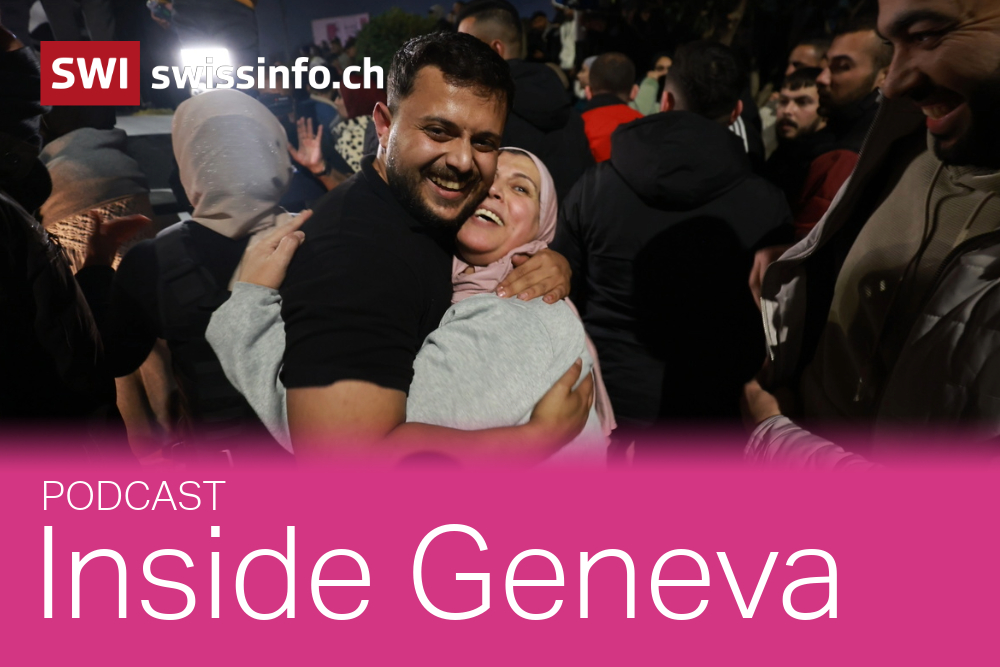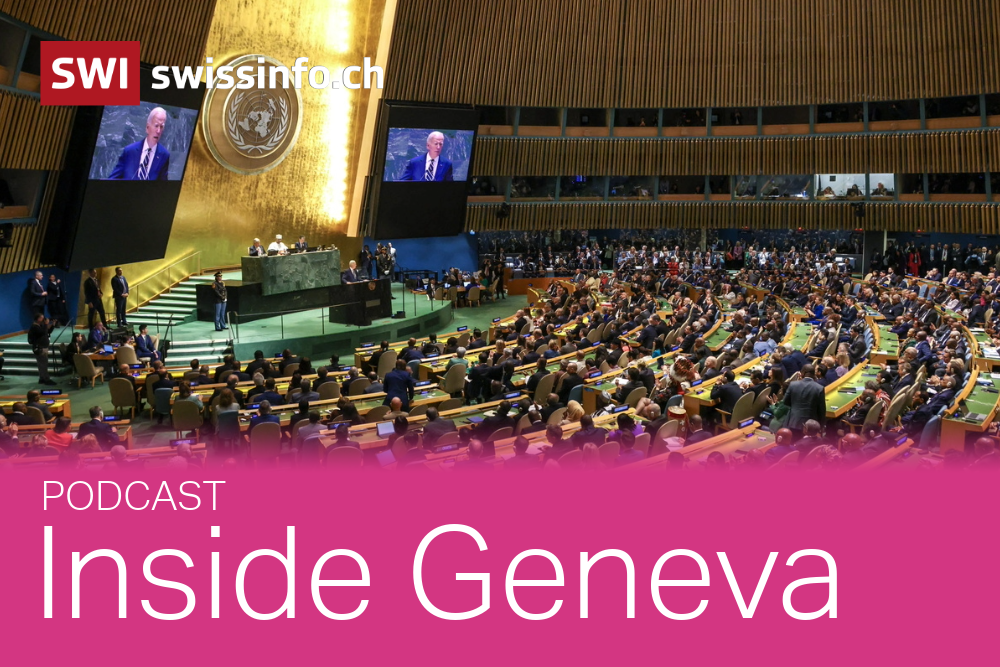What is a good peace deal?
As I write this, a fragile ceasefire in Gaza has begun. Three Israeli hostages have been released after 470 terrifying days in captivity, as have 90 Palestinian hostages, many of them women and children.
The atmosphere is tense, to say the least. This ceasefire agreement is taking hold in one of the most volatile, violent regions in the world, where multiple attempts at peace – some more realistic and well intentioned than others – have failed.
So, in this week’s Inside Geneva podcast, we take a look at what makes a good, sustainable peace agreement. How easy or challenging is it to craft a really solid peace treaty? Our guests, Laurent Goetschel of Swiss Peace, and Katia Papagianni of the Geneva Centre for Humanitarian Dialogue, have answers, but they are not, as listeners will find, quick and easy ones.

More
Inside Geneva: what makes a good peace deal?
“Peace is not just a status” Goetschel tells Inside Geneva. “I mean, peace is a process and it’s a process which is part of politics in general.” That means, of course, that politicians and their personal interests in advancing their fortunes or remaining in power will also be a factor, and not always a positive one.
Analysts suggest the ceasefire agreement now fitfully taking hold in Gaza is virtually identical to one presented to the warring parties back in May. But at that point, neither side apparently felt like compromising, condemning the hostages to many more months in captivity, and the people of Gaza to months more relentless, brutal, bombing.
Inclusivity
So what does it take to bring warring parties to the negotiating table? And, more importantly, what elements are needed to get them to agree a workable peace? Papagianni offers four key elements that she says are fundamental. First, she tells Inside Geneva “all important actors, those who have military and political power have to be part of the agreement.”
This includes those who may be seen as very “distasteful partners”, Papagianni admits, and this can be difficult for populations who have lost homes, livelihoods, and loved ones in a brutal conflict. But without that inclusivity, there is a big risk that the war will simply start up again.
Papagianni’s second element is the support of the local community, who must, she says, feel invested in the negotiations. Third; security guarantees. The warring parties need assurances that each side will respect and implement the peace agreement. And finally; the “peace dividend”. Ordinary people need to feel that peace will bring positive change, and quickly. That they are able “to breathe, to know that their children can go to school, that there is water that can be consumed safely, that there is food, that there is a possibility to return to their homes.”
Good examples?
So are there shining examples we can point to, of peace agreements that have contained all those elements, and which have worked? Both Goetschel and Papagianni point to the agreements that led to the end of the war in Bosnia-Herzegovina in 1995. Goetschel admits the accord is imperfect, but adds, “an agreement was found which tries to include the major relevant ethnic groups. Nothing is perfect. We can read a lot about problems, particularly socioeconomic problems in the region, but there is no violent conflict going on.”
So what about the claims, made by newly inaugurated United States President Donald Trump, that he can end the war in Ukraine in 24 hours? I had expected, given the emphasis both my interviewees placed on the need for patience and compromise in peace negotiations, that such an idea would be dismissed as fantasy. But Papagianni is adamant that no move towards peace should ever be ignored.
‘‘When someone says I want to have an agreement in 24 hours” she tells me, “my response as a professional is, okay. What are our ideas? What is possible right now? What is the most that can be made out of this possibility, if indeed it is a possibility?”
But, both Goetschel and Papagianni stress, while a ceasefire, a pause in hostilities can open the door towards something more lasting, simply freezing a conflict is not the same as genuine peace.
“Peace, meaning just the absence of war, can be the result of a negotiation, maybe even of a short negotiation between powerful actors directly or indirectly involved in the conflict” explains Goetschel. “But it’s not only about the stopping of hostilities. It’s about working towards conditions which tackle the major issues. And this is a longer lasting process.”
And, he warns “if you negotiate an agreement just to move on with the same line of behaviour you had before, then of course you’re doomed to fail.”
Our hearts may sink hearing that, because many of us don’t have a lot of faith that those engaged in conflict – and there are so many of them – are really willing to change their behaviour, adapt their goals, or accept in any way at all that their opponents may also have legitimate interests.
But Papagianni, who spends her working life quietly discussing possible peace plans with those very warring parties, believes we should not give up.
“The space for dialogue never dies,” she insists, “even when the conflict is at its highest. So, yes, I am hopeful. I think that there are solutions out there, that there are people, serious people, who are working for these solutions. And what we need is a momentum, a push to make the leap from war to peace.”
To hear the whole conversation, listen to Inside Geneva. And let’s hope Papagianni is right.
vm/livm

In compliance with the JTI standards
More: SWI swissinfo.ch certified by the Journalism Trust Initiative














You can find an overview of ongoing debates with our journalists here . Please join us!
If you want to start a conversation about a topic raised in this article or want to report factual errors, email us at english@swissinfo.ch.